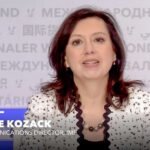
Sri Lanka Not Out of the Woods Yet -Must Safeguard Hard-Won Gains- IMF

The International Monetary Fund (IMF) has cautioned that while Sri Lanka has made notable progress in its economic recovery, the nation is still vulnerable and must work to protect the hard-earned gains it has achieved so far. Speaking at an IMF press briefing on September 12, Director of the IMF Communications Department Ms. Julie Kozack, emphasized the importance of sustained reforms and vigilance, especially with the upcoming presidential elections.
Kozack acknowledged the role of the people of Sri Lanka in determining the nation’s political future, noting, “It is important to understand that the outcome of the elections is for the people of Sri Lanka to decide. However, achieving the objectives of the IMF program is crucial to help Sri Lanka emerge from one of the most severe crises in its history. As I’ve already noted, a lot of progress has been made, but the country is not out of the woods yet, and it is important to safeguard those hard won gains.”
She highlighted key milestones the country has achieved under the IMF’s Extended Fund Facility (EFF) program. In June, the IMF’s Executive Board concluded the 2024 Article IV Consultation and the Second Review of the EFF, unlocking around USD 336 million in funding. Kozack reported that economic growth is beginning to recover, inflation is subsiding, international reserves are growing, and revenue collection is improving.
Despite this positive progress, Kozack warned that Sri Lanka remains exposed to significant economic risks. “Sustaining the momentum of reforms is essential,” she added.
On the subject of debt restructuring, Kozack responded to questions about private creditors submitting their proposals to the IMF, particularly in relation to Sri Lanka’s domestic debt restructuring efforts. She pointed out that key milestones had been achieved with the execution of domestic debt restructuring and agreements with the official creditor committee and EXIM Bank of China. However, she was careful to note that the IMF does not engage in direct negotiations between Sri Lanka and its creditors, instead offering an overall assessment of debt sustainability.
Kozack reiterated that while the IMF supports Sri Lanka’s reform efforts, the timing of the Third Review will depend on the outcome of the upcoming elections. “Program discussions will resume after the elections, once a new government is in place,” she stated.
The IMF’s message remains clear: Sri Lanka has come a long way, but the path to full recovery requires on-going commitment to reforms and a focus on economic stability.



